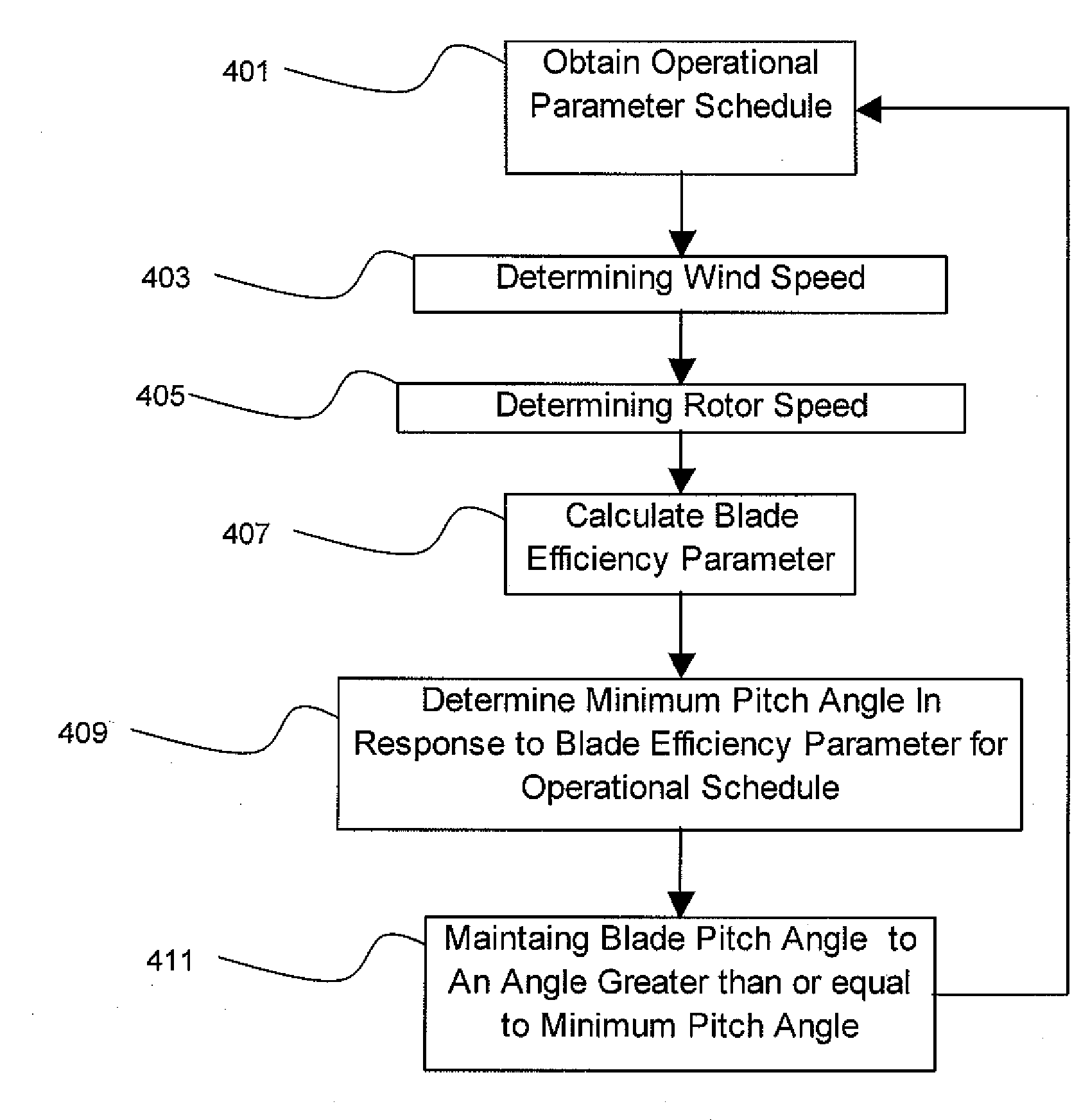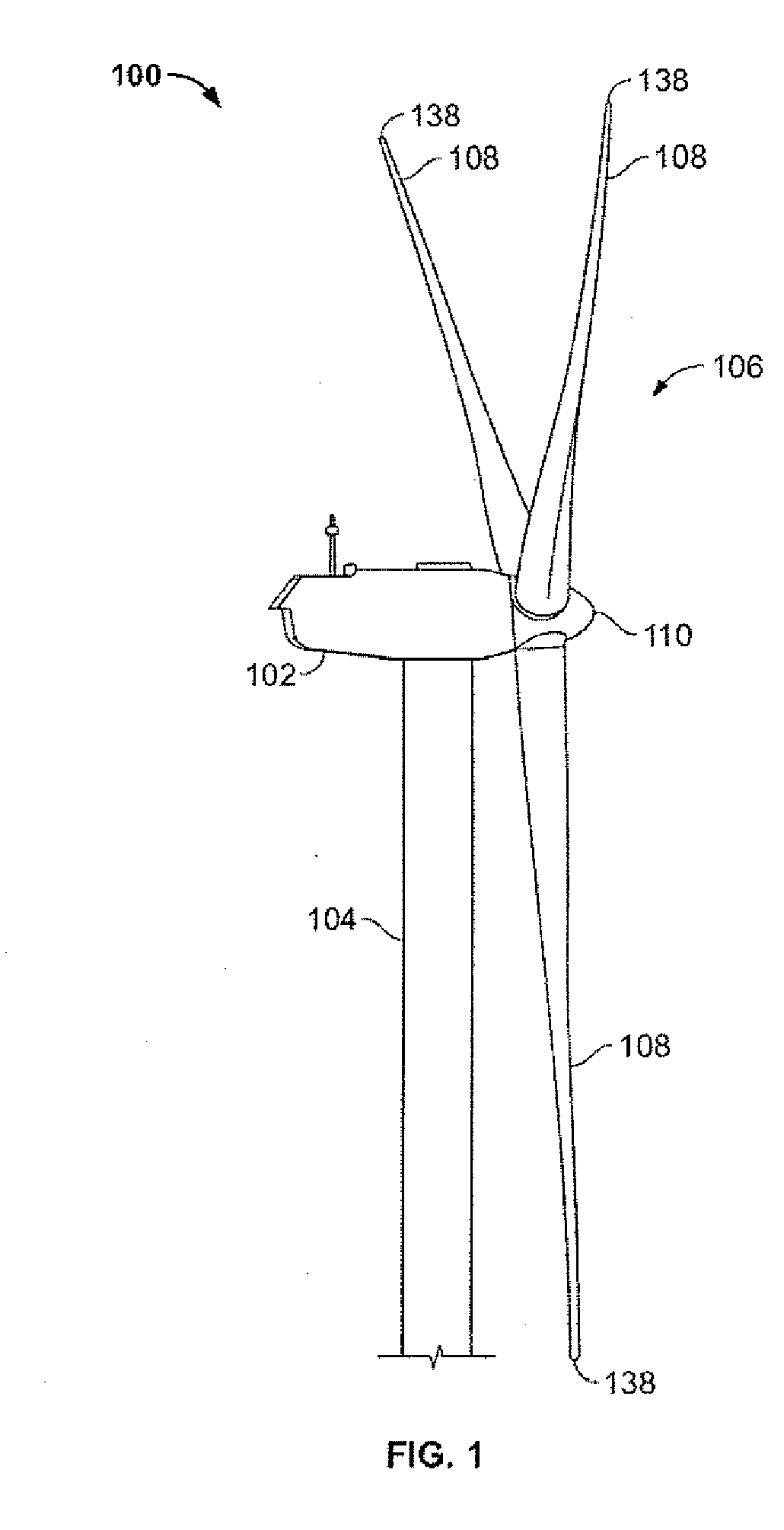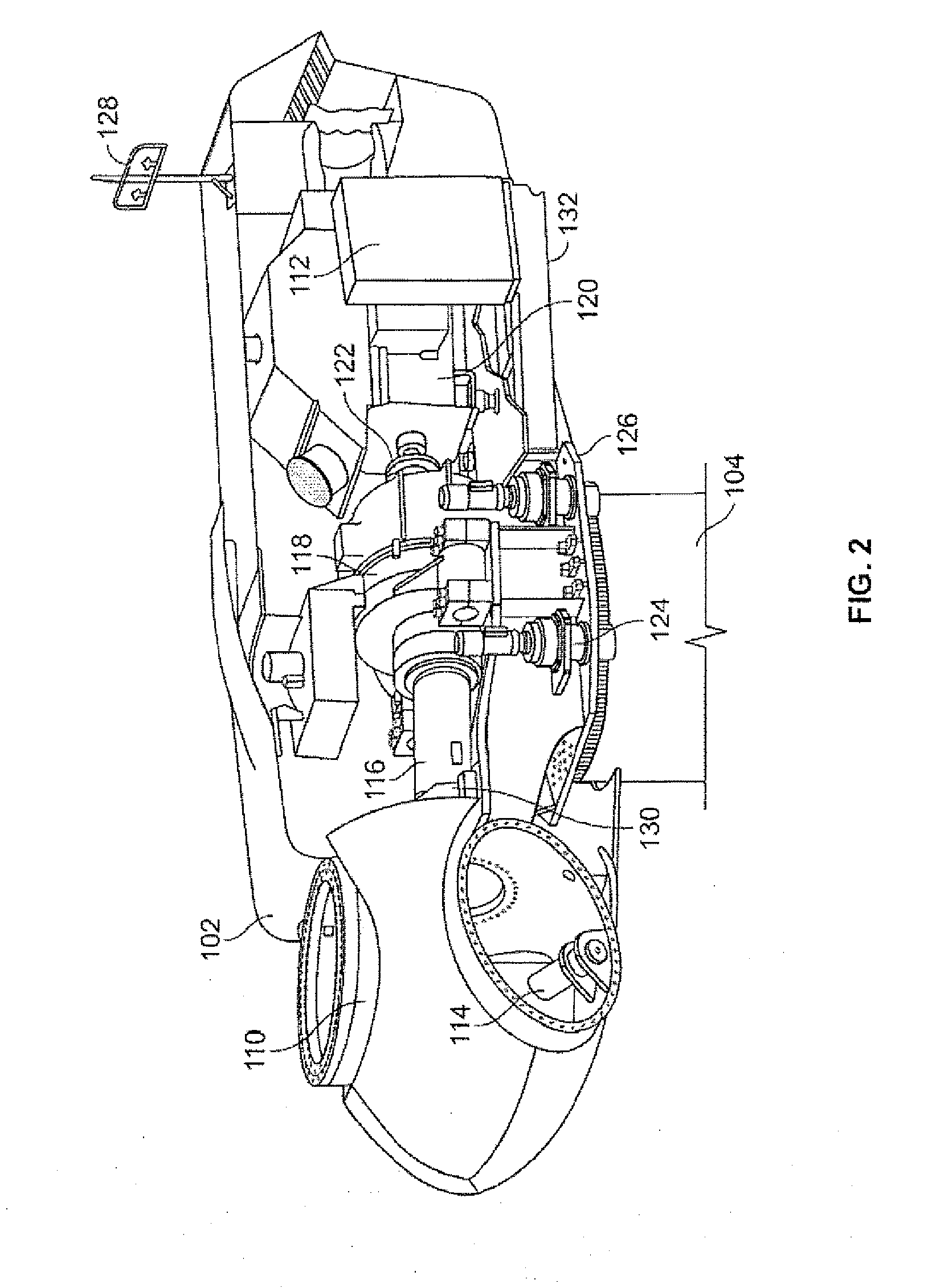Blade pitch management method and system
a blade pitch management and blade technology, applied in the direction of rotors, marine propulsion, vessel construction, etc., can solve the problems of reducing the efficiency of energy transfer, affecting the power production of wind turbines, and becoming increasingly difficult to control optimal energy capture, so as to reduce or eliminate aerodynamic stalls and low implemental costs
- Summary
- Abstract
- Description
- Claims
- Application Information
AI Technical Summary
Benefits of technology
Problems solved by technology
Method used
Image
Examples
example
[0031]FIG. 5 shows a graphical representation of a minimum pitch angle curve shown at the maximum Cp as a pitch angle according to an exemplary wind turbine control scheme. As shown in FIG. 5, in this example, the maximum power (Cp) point 500 along power curves 501 corresponding to the various tip speed ratios (i.e., tip speed ratios of 3.0, 4.0, 5.0, 6.0, 7.0, and 8.0, corresponding to TSR 3, TSR 4, TSR 5, TSR 6, TSR, 7 and TSR 8, respectively). These maximum power points 500 equal the minimum pitch angle setting for the wind turbine control according to embodiments of the disclosure. The maximum power points 500 are plotted to form a minimum pitch angle curve 503. As shown, the minimum pitch angle curve 503 provides wind turbine control such that operation on the left side region of the curve (i.e., “High AOA Stall” region), includes a high angle of attack blade and potential approach to stall, wherein the method of the present invention requires that the wind turbine maintain (an...
PUM
 Login to View More
Login to View More Abstract
Description
Claims
Application Information
 Login to View More
Login to View More - R&D
- Intellectual Property
- Life Sciences
- Materials
- Tech Scout
- Unparalleled Data Quality
- Higher Quality Content
- 60% Fewer Hallucinations
Browse by: Latest US Patents, China's latest patents, Technical Efficacy Thesaurus, Application Domain, Technology Topic, Popular Technical Reports.
© 2025 PatSnap. All rights reserved.Legal|Privacy policy|Modern Slavery Act Transparency Statement|Sitemap|About US| Contact US: help@patsnap.com



